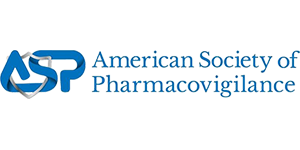Biography
Sara Rogers co-founded the American Society of Pharmacovigilance and co-led the formation of the Standardizing Laboratory Practices in Pharmacogenomics (STRIPE) Collaborative Community, a public-private multidisciplinary initiative to develop consensus-based industry standards for pharmacogenetics testing. She joined Texas A&M University in 2021, where she holds joint appointments with Institute of Biosciences and Technology, School of Medicine and Irma Lerma Rangel School of Pharmacy. Rogers co-chairs the Pharmacogenomics Access and Reimbursement Coalition and collaboratively develops the Coalition’s research agenda to understand the payment and policy landscape for pharmacogenetics testing and its role in disparities in patient access. Rogers is an organizational member of the NIH NHGRI Inter-Society Coordinating Committee and develops educational resources to help practitioners navigate coverage for pharmacogenetics testing. Rogers has served as co-investigator for a pilot study to identify ethical values and priorities related to pharmacogenomics. Her research focuses extensively on patient access to and reimbursement for pharmacogenetics testing.
Talk
While innovative precision technologies can improve patient outcomes; they present new information and price shocks to payers. Emerging clinical guidelines may add to the confusion and further hamper payer acceptance. During this session, we’ll explore payer perspectives in the evidence evaluation processes that guide coverage decisions.
Session Abstract – PMWC 2023 Silicon Valley
Track 1, Day 3
While innovative precision technologies can improve patient outcomes; they present new information and price shocks to payers. Emerging clinical guidelines may add to the confusion and further hamper payer acceptance. During this session, we’ll explore payer perspectives in the evidence evaluation processes that guide coverage decisions.
Session Abstract – PMWC 2023 Silicon Valley
Track Co-Chair:
Mary Relling, St. Jude
Pharmacists have long recognized that using unique patient characteristics to guide pharmacotherapy decision-making can improve drug response and mitigate drug-associated risks. Age, weight, and dietary habits were among the first patient-specific characteristics used to individualize pharmacotherapy. As technologies advanced, analytic tools that measure surrogate markers of liver and renal function, together with drug concentrations in biological fluids, were adopted to optimize therapeutic regimens. Cutting-edge genomic technologies are now being integrated into patient care for the selection of targeted therapies and identification of those at increased risk of poor pharmacotherapy outcomes. We’re excited to bring together experts who are advancing pharmacogenomics at scale through cutting edge clinical implementation, research, and education.
- PMWC 2023 PGx Award Ceremony:
Pioneer Honoree: Dan Roden, Vanderbilt University Medical Center
Luminary Honoree: Kelly E. Caudle, St. Jude
- Fireside Chat:
PMWC 2023 Pioneer Honoree Dan Roden, Vanderbilt University Medical Center with Mary Relling, St. Jude - Keynote by PMWC 2023 Luminary Honoree:
- Kelly E. Caudle, St. Jude - Fireside Chat:
Chair: Damon Hostin, Illumina
- Howard McLeod, Intermountain Health - Laboratory Testing and Reports
Chair: Kristy Crooks, University of Colorado
- Ann M. Moyer, Mayo Clinic
- Stuart Scott, Stanford University
- Implementation of PGx at UCSF
- Bani Tamraz, UCSF
- From Economics to Reimbursement (PANEL)
Chair: Sara Rogers, American Society of Pharmacovigilance
- Stirling Bryan, The University of British Columbia
- Ray Stultz, Optum
- Gabriel Bien-Willner, Palmetto GBA
- Policy Efforts to Address Barriers to PGx Adoption
Chair: Kristine Ashcraft, Invitae
- Pam Traxel, ACS CAN - PGx Practice Liability
Chair: Dan Hertz, University of Michigan
- Anthony Morreale, VA, San Diego
- Karen Merritt, Patient Advocate - Diversity, Equity, and Inclusion in Pharmacogenomics Implementation
- Carlos Bustamante, Galatea Bio
- Kathy Giacomini, UCSF - Implementation of PGx Program & PGx Clinic Services in a Large Rural Healthcare Setting
- April Schultz, Sanford










